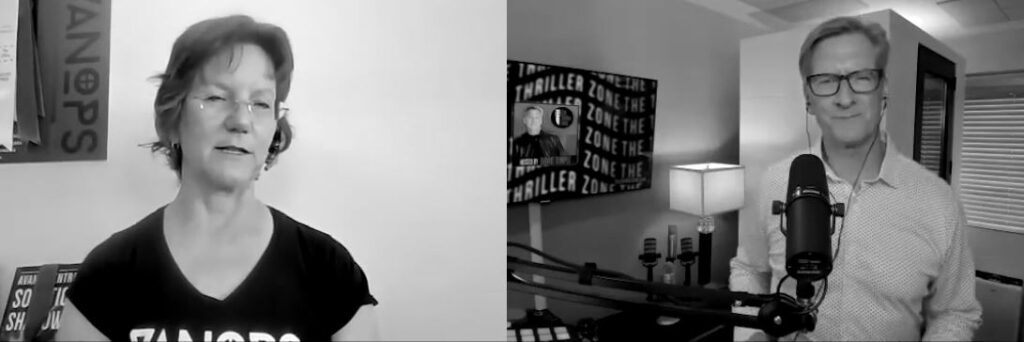
Through her books as well as her captivating podcast appearances and media interviews, Avanti Centrae has emerged as a leading voice in modern thriller writing. From an IT executive in Silicon Valley to an international bestseller, she has undergone a remarkable transformation, exemplifying the flexibility that many creatives strive for but few can achieve with such accuracy. Her novels seem as relevant as the headlines that rule the daily news cycles because of her remarkable ability to combine historical intrigue with contemporary suspense.
Her thoughts on Cleopatra’s Vendetta, a book that vividly resurrects Cleopatra not as a tragic seductress but as a crafty strategist whose story deserves to be told, captured the attention of readers of On The Joys of Binge Reading. This reimagining is especially creative and fits in well with the historical cultural reexamination of women. Centrae’s literary portrayal adds to a larger cultural discussion about how legacies are shaped and remembered, much like Gal Gadot’s upcoming Cleopatra movie has generated excitement.
| Name | Avanti Centrae |
|---|---|
| Profession | International bestselling thriller author |
| Background | Former Silicon Valley IT executive turned novelist |
| Genres | Action thrillers, historical suspense, techno-thrillers |
| Notable Works | VanOps Series, Cleopatra’s Vendetta, The Doomsday Medallion |
| Awards | Multiple literary honors, Top 100 bestseller rankings globally |
| Podcast Features | The Thriller Zone, #BadassWriters, The Joys of Binge Reading |
| Style | Blends history, science, espionage, and suspense with cinematic pacing |
| Website | www.avanticentrae.com |
She likened her VanOps series to a cross between Tomb Raider and The Da Vinci Code when she appeared on The Thriller Zone. Her intentional strategy of writing books that read like movies is reflected in that analogy, which was remarkably similar to the way Hollywood markets high-concept blockbusters. This strategy works incredibly well for drawing in readers who enjoy both cerebral riddles and action-packed stories, as well as for attracting the interest of movie and TV producers looking for properties that can be adapted.
Centrae was refreshingly honest when discussing her creative process with Kathleen Foxx on the #BadassWriters podcast. She talked about the importance of pacing, which she views as the beating heart of her stories, the role of family members as early test readers, and her outlining system. Her openness was especially helpful to up-and-coming writers, who found her helpful guidance to be encouraging and relatable. This type of instruction could greatly lessen the challenging learning curve that many authors encounter when trying to write their first book.
Her observations frequently touch on cultural commentary in addition to craft. She talked about the pervasiveness of propaganda in one interview, drawing a comparison between the way Roman historians smeared Cleopatra and the digital disinformation campaigns of today. In addition to being historically accurate, this context significantly enhanced the audience’s comprehension of how stories, whether they be contemporary or ancient, influence political realities. Centrae demonstrated how fiction can act as a mirror for society’s ongoing struggles with perception and truth by spanning eras.
Her ability to humanize her journey appeals to both listeners and readers. She discussed creativity, legacy, and her desire to encourage others to live boldly in Reader’s House Magazine. That perspective is very effective in helping her audience connect on a deeper level because they perceive her as a mentor as well as an author who encourages them to embrace courage. Her advice to “be the hero of your own story” has become a marketing slogan and a way of thinking for people who are struggling with their own problems.
Her career change reflects a broader cultural trend of reinvention, evoking examples such as Elon Musk’s unrelenting ambition to cross industries or Reese Witherspoon’s transition from acting to media entrepreneurship. These reimaginings demonstrate how professionals today define success in a variety of ways, and Centrae’s transition from IT to international fiction reflects this spirit. She is evidence that creativity can flourish when discipline and risk-taking are combined.
As a result of recent events, she is now positioned as a cultural ambassador for thrillers rather than just a storyteller. She wrote an essay on “The Mystery of Creativity” at Killer Nashville, using Wonder Woman’s lasso and Sherlock Holmes’ pipe as metaphors for the recognizable imagery that motivates authors. That essay did a remarkable job of demythologizing the creative process and reminding readers that art is about technique and perseverance as much as mystery.
Her impact as a writer is further supported by her expanding online presence. With thousands of Instagram and Twitter followers, she is still incredibly dependable when it comes to interacting with fans directly and sharing both promotional content and introspective thoughts. The change in publishing, where authors are expected to function as public intellectuals, influencers, and entrepreneurs in addition to being writers, is reflected in this visibility. The harmony of these responsibilities has been especially helpful to Centrae in expanding her readership and guaranteeing that her books continue to be highly visible in a crowded market.
Her thrillers, like The Doomsday Medallion, frequently seem uncannily in line with geopolitical issues, reiterating worries about cyberwarfare, espionage, and the brittleness of truth. Her stories feel much faster than traditional historical fiction, but they still have intellectual weight because she makes connections between ancient artifacts and current power struggles. She stands out for her ability to combine depth and speed, which makes her books incredibly appealing to a wide range of readers.
It is impossible to avoid drawing comparisons between Centrae’s current momentum and Dan Brown’s ascent. Her emphasis on strong female leads, however, adds a layer of empowerment that is remarkably similar to cultural movements calling for greater representation in popular narratives, in contrast to Brown. This focus is both culturally and commercially necessary, guaranteeing that her stories will speak to a generation that is acutely conscious of equity and diversity.
